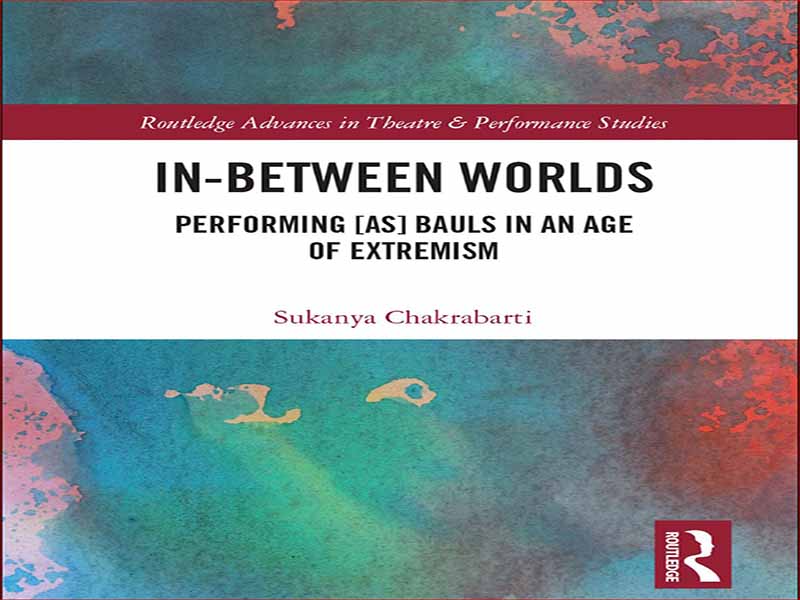- عنوان کتاب: In-Between Worlds – Performing as Bauls in an Age of Extremism
- نویسنده: Sukanya Chakrabarti
- حوزه: افراط گرایی
- سال انتشار: 2022
- تعداد صفحه: 249
- زبان اصلی: انگلیسی
- نوع فایل: pdf
- حجم فایل: 10.1 مگابایت
من این آهنگ ناشناس باول را نقل میکنم که آنچه را که گروه ناهمگون نوازندگان شفاهی از بنگال بهرغم شیوههای متنوع معنوی، تشریفاتی و موسیقایی – ناپایداری، مسافرت، آزادی، آگاهی بدن و رهایی – به اتفاق آرا نشان میدهند، خلاصه میکند. در حالی که به طور سنتی، Bauls با اعمال معنوی و آیینی با تمرکز بر بدن همراه بوده است، آهنگهای آنها با معانی لایهای نیز از نظر فرهنگی، هم در استودیوها و هم در کنسرتها، در داخل هند و در سطح بینالمللی اجرا شده است. چنین شیوههای اجرایی متنوعی مرا وادار کرده است که به فاصلههای اجراهای ترکیبی نگاه کنم، که مفروضات همگنی را در میان این گروه از اجراکنندگان گسست. در پس زمینه جهانی شدن، بررسی اجراهای Bauls جالب است، گروهی که هنوز برچسب “فولکلور” را یدک می کشد، به جای اینکه هویت “عامه” خود را به عنوان یک مشخصه بپذیرم، ماهیت مردمی بودن آنها را زیر سوال می برم و حتی نشان می دهد که Baul ها چیزی بیش از اجراکنندگان فرهنگی، معنوی و موسیقی هستند – آنها همچنین اجراکنندگان سیاسی-اجتماعی هستند که بارها پیام برابری، انصاف، شفقت، صلح و عشق خود را در فرآیندهای پیچیده اجتماعی در میان گذاشته اند. اقدامات مقاومتی آشکار و پنهان
در این لحظه، در حالی که من این مقدمه را می نویسم، رسانه های اجتماعی با گفتمان هایی در مورد نژاد، مذهب، افراط گرایی، قطبی شدن و خشونت، هم در فضای سیاسی آمریکا و هم در هند، غرق می شوند. در حالی که ایالات متحده شاهد بیگانه هراسی، نژادپرستی و اسلام هراسی شدید، به ویژه در دوران رژیم ترامپ، با عادی سازی لفاظی های نژادپرستانه، خشونت و قتل آشکار پلیس نژادپرستانه، تهدید به دیوارها، و اخراج مهاجران و «بیگانگان» بوده است. چشمانداز سیاسی به دلیل قوانین و سیاستهای ظالمانهای که دولت ملیگرای هندوی راست افراطی اجرا میکند، مانند لایحه اصلاح شهروندی (CAB) و لوایح مزرعه، در حالی که اجرای ثبت ملی شهروندان (NRC) مشروعیتزدایی از شهروندی مسلمان را اعمال میکند، آشفته است. آرونداتی روی با پیشبینی پیامدهای وحشتناک چنین سیاستهای طردکننده قطبیها، به ما هشدار میدهد: «خشونت دربرگیری و خشونت طرد، پیشآزمون تشنجی است که میتواند پایههای هند را تغییر دهد – و معنا و جایگاه آن را در جهان تغییر دهد. .’2 در سراسر جهان جو کلی از جنجال بزرگ، بیگانه هراسی، اسلام هراسی، نابردباری، و درگیری های «ما-آنها» وجود دارد. نگرانی در مورد مرزها، مهار، و آنچه که «ملت» را تشکیل میدهد چیز جدیدی نیست – با این حال، من مطالعه خود را در مورد باولها در چارچوب سیاست معاصر قرار میدهم که عمدتاً توسط جهانیسازی شکل میگیرد که به طور ناگهانی شکل گرفته است. ، مفهوم مرزهای محکم ملی را به دلیل مسافرت، مهاجرت و جابجایی که یا تسهیل یا ضروری کرده است، تضعیف کرد. افزایش سفرها، مهاجرت و تعامل بین جوامع و کشورهای مختلف متعاقباً ترس از آلودگی و تصاحب را تشدید کرده است، بنابراین پارانویای دیگری را ایجاد می کند. در زمینه دنیای پس از COVID-19، این سرایت دیگر محدود به حوزه فرهنگی و استعاری نیست، بلکه اهمیت تحت اللفظی پیدا کرده است. اگرچه این بیماری همه گیر به ظاهر یک مساوی کننده است زیرا بر اساس نژاد، رتبه، طبقه و عقیده تبعیض قائل نمی شود، قطعاً نابرابری های اجتماعی و فرهنگی را در سراسر جهان آشکار و تشدید کرده است.
I quote this anonymous Baul song as it sums up what the heterogeneous group of oral performers from Bengal represents quite unanimously, despite their diverse spiritual, ritualistic, and musical practices – impermanence, travel, free¬dom, body consciousness, and liberation. While traditionally, Bauls have been associated with spiritual and ritualistic practices with the focus being on the body, their songs with layered meanings have been performed culturally as well, both in studios and in concerts, within India and internationally. Such varied performative practices have compelled me to look at the interstices of hybrid performances, which rupture the assumptions of homogeneity among this group of performers. Against the backdrop of a globalizing world, it is interesting to examine performances of Bauls, a group that still carries the label of ‘folk.’ Instead of accepting their ‘folk’ identity as a given, I question the nature of their folk-ness and even suggest that the Bauls are more than cultural, spiritual, and musical performers – they are sociopolitical performers as well, who have repeatedly interceded with their message of equality, fairness, com¬passion, peace, and love in complex social processes, in overt and covert acts of resistance.
At this moment, as I write this introduction, the social media is inundated by discourses on race, religion, radicalization, polarization, and violence, in both the American and the Indian political climates. While the US has been witness¬ing extreme xenophobia, racism, and Islamophobia, especially during Trump regime, with normalization of racist rhetoric, outright racist police brutality and murders, threats of walls, and expulsion of immigrants and ‘aliens,’1 the Indian political landscape is distraught by oppressive laws and policies imple-mented the Far Right Hindu nationalist government, such as the Citizenship Amendment Bill (CAB) and the Farm Bills, while enforcing the National Register of Citizens (NRC) delegitimizing Muslim citizenship. Anticipating horrific outcomes of such exclusionary politics of polarities, Arundhati Roy forewarns us, ‘The violence of inclusion and the violence of exclusion are precursors of a convulsion that could alter the foundations of India – and rear¬range its meaning and its place in the world.’2 There is a general climate of big-otry, xenophobia, Islamophobia, intolerance, and ‘us-them’ conflicts across the world. Anxieties about borders, containment, and what constitutes the ‘nation’ are not new – however, I situate my study of the Bauls in the context of con¬temporary politics, which are also shaped largely by globalization, which has, all of a sudden, undermined the notion of firm national boundaries because of the travel, migration, and dislocation it has either facilitated or necessitated. Increased travels, migration, and interaction between different communities and countries have subsequently intensified fears of contamination and appro¬priation, therefore, paranoia of the other. In the context of a post-COVID-19 world, the contagion no longer is restricted to the domain of the cultural and the metaphoric but has gained literal significance. Even though the pandemic seemingly is an equalizer as it does not discriminate on the basis of race, rank, caste, and creed, it has certainly exposed and intensified the social and cultural inequities worldwide.
این کتاب را میتوانید از لینک زیر بصورت رایگان دانلود کنید:
Download: In-Between Worlds



































نظرات کاربران